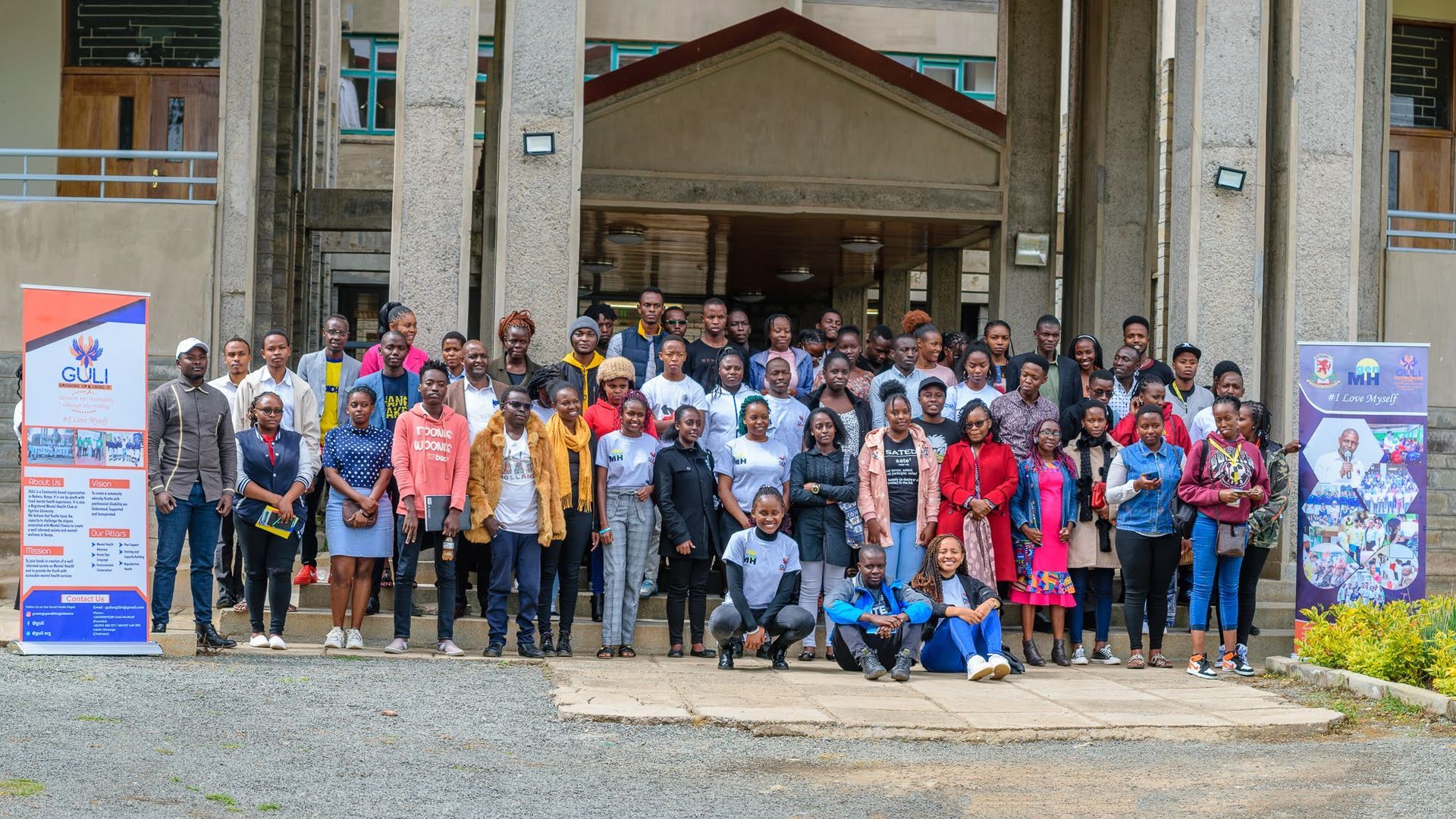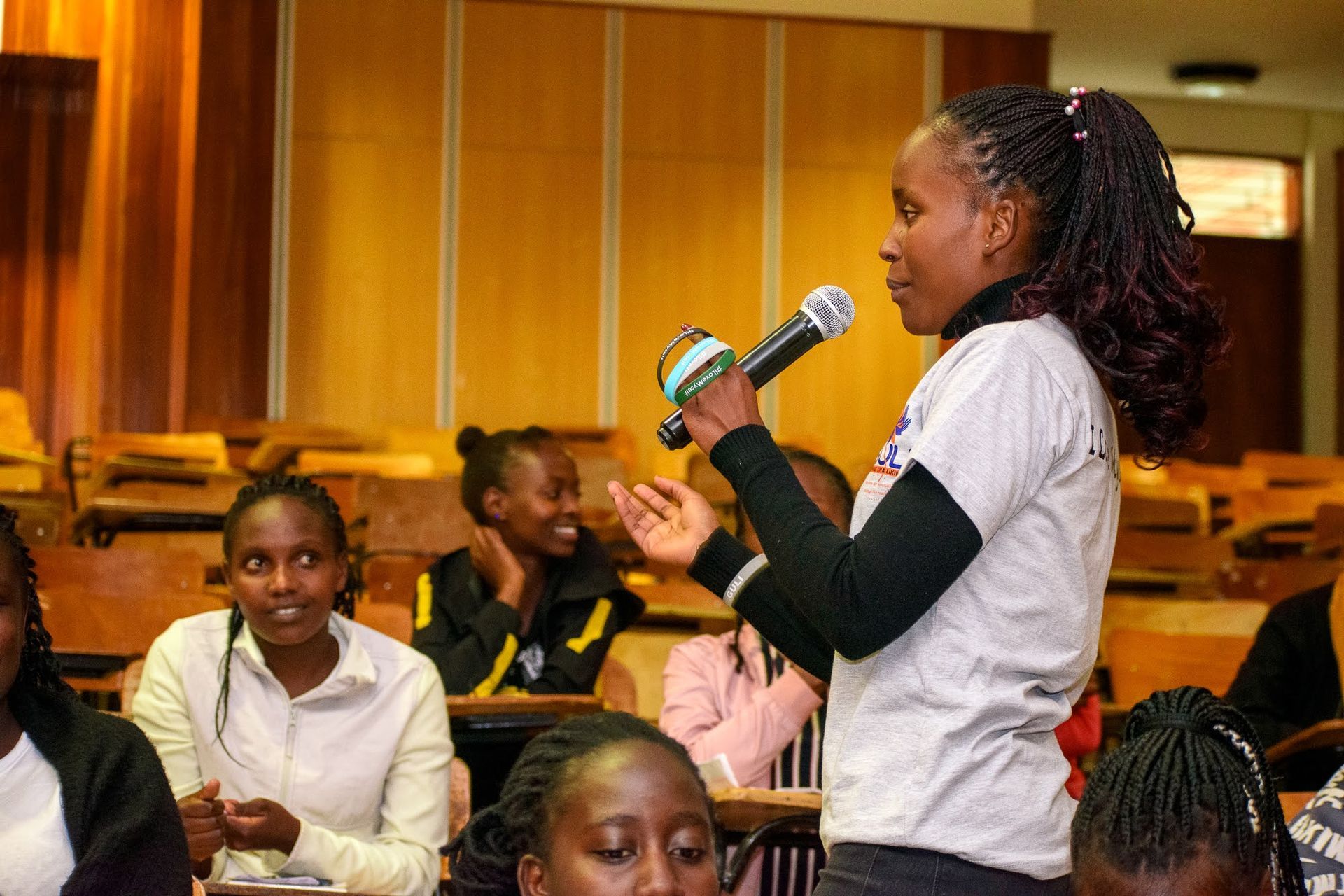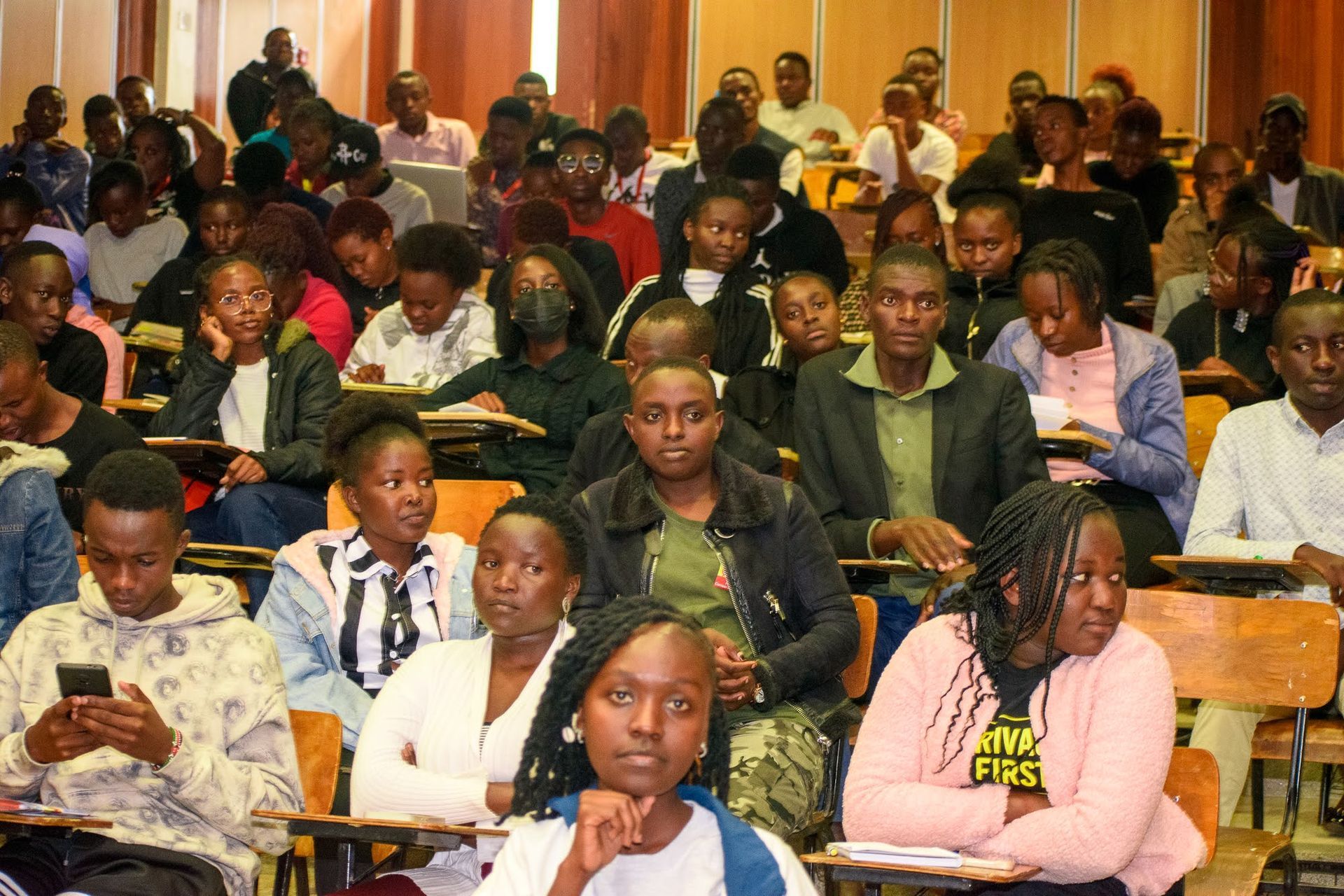Fellowship Diaries: GULI Club at Egerton University, Kenya

On 11th November, GenMH University Mental Health Fellow, Gakii Mwithali, organised a hugely successful mental health training session attended by over 350 students of Egerton University in Kenya.
The event was hosted by GULI Club and sponsored by GenMH, and focussed on the following topics:
- Mental Health Literacy;
- Sexual harassment and its implication on mental health among the youth;
- Contraception among the youth and its implications and;
- Effects of FGM on mental health among the youth.

We asked Gakii why sessions like this are so important in the Kenyan university setting:
"Challenges of managing mental conditions in Kenya include low awareness, limited treatment options and implied costs of treating mental illnesses. More information about access and utilization of mental health services is critical in improving mental health outcomes among the youth.
Although depression is a common health problem and has been shown to have detrimental effects on the students’ studies, few studies in Kenya have addressed the mental health problems in Kenyan universities."
To address this awareness and resource gap, Gakii and GULI Club aimed to sensitise Egerton students to adopt a mental health care-seeking attitude towards fell students and to encourage students to engage in creating awareness and mental health advocacy.

We are grateful to have been able to support such an important youth-led event, and we look forward to seeing more events and activities from Gakii and GULI Club in Kenya!
Well done to all those involved in organising the event, and a big thank you to the speakers and attendees for creating such an engaging and interactive event!


